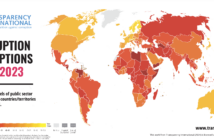Podgorica, 12 November 2010 – One of the key barriers for Montenegro’s entry into the EU remains the inadequate results achieved in the fight against corruption by the country’s police, judicial and state-prosecutor. The latest progress report on Montenegro has once again highlighted shortcomings within these institutions that the European Commission has been pointing to for years.
In its most recent report, the Commission’s reservations are clearly
stated:
there will be no further progress towards the EU without the achievement of concrete results in the fight against corruption and organized crime.
However, given the current capacities of key institutions in meeting these challenges, the seven conditions required of Montenegro to continue with its EU integration seem virtually unrealizable.
Concretely, the institutions responsible for criminal investigations do not possess the skills necessary to undertake key financial investigations. Nor do they possess the ability to follow through along the entire chain of processing corruption cases (beginning with the initial investigation, through to the laying of charges and ending with convictions and sentencing). Furthermore, the lack of proactive investigations by the police and the prosecutor are noted as a particular problems.
As an illustration, it is sufficient to consider the number of cases filed against senior state officials and associated tycoons that have yet to be processed (in spite of the officially declared intention to confront corruption and organized crime). The yawning gap between quasi-political rhetoric and demagogy on this front and the lack of concrete results achieved by the police, judiciary and state-prosecutor are most clearly visible in the lack of judicial convictions in such cases.
Similarly, the contribution of domestic institutions to regional cooperation in the “Balkan Warrior” operation is a further illustration of the capacities of the Montenegrin police, judiciary and state-prosecutor. It clearly demonstrates the extent to which regional countries can depend on us when it comes to the joint processing of the most serious criminal offenses.
Instead of focusing on such regional cooperation, the bulk of these institutions’ capacities is currently dedicated to processing cases of low-level administrative corruption, as well as carrying out judicial proceedings against those individuals, NGOs and media that dare to point-out the obvious failures in their work.
When we add to all this the lack of independence, transparency and considerable conflicts of interest, it becomes clear that Montenegro currently lacks institutions that can resist well-organized criminal structures. Corruption within key institutions themselves serves to paralyze any concrete actions aimed at addressing such burning problems. As a result, the “big-fish” continuously manage to avoid being ensnared by Montenegrin police actions, the state-prosecutor’s investigations or by judicial convictions. This begs the question: how porous exactly is our anti-corruption net?
The concrete actions that the European Commission is requesting – as confirmation of Montenegro’s acceptance of European norms – cannot be realized while the most senior positions key institutions tasked with addressing corruption are staffed by individuals, who either through their actions or inaction, have turned Montenegro into a captured state whose institutions are hostage to a small group of tycoons gathered around governing structures.
It is for this reason, in so far as a European future is even the goal of governing institutions, that serious leadership changes in key institutions are necessary in order to break with the current practice of these institutions aimed at ingratiating themselves towards senior officials and turning a blind eye to major corruption scandals.
Vuk Маrаš
Monitoring Program Director



